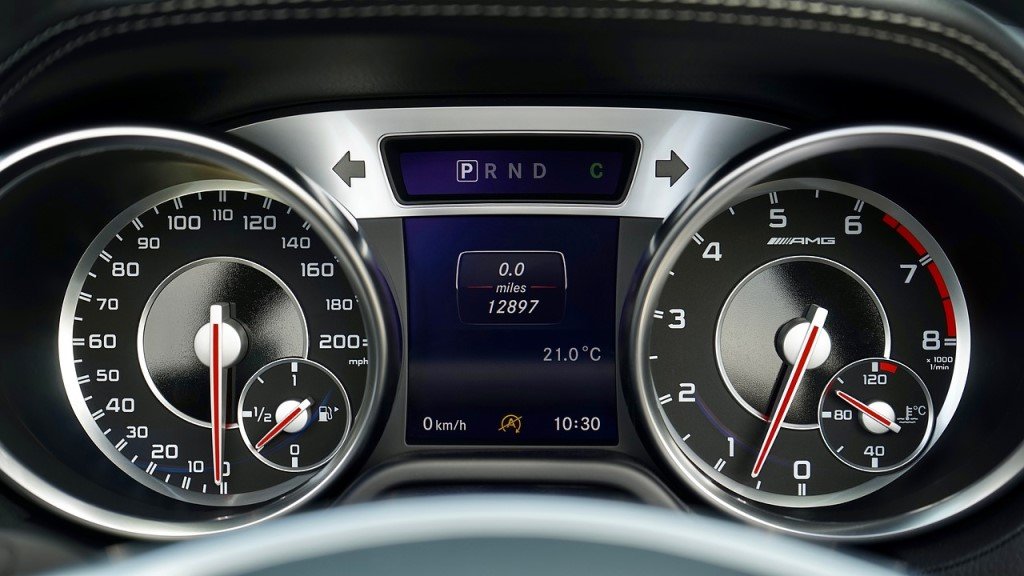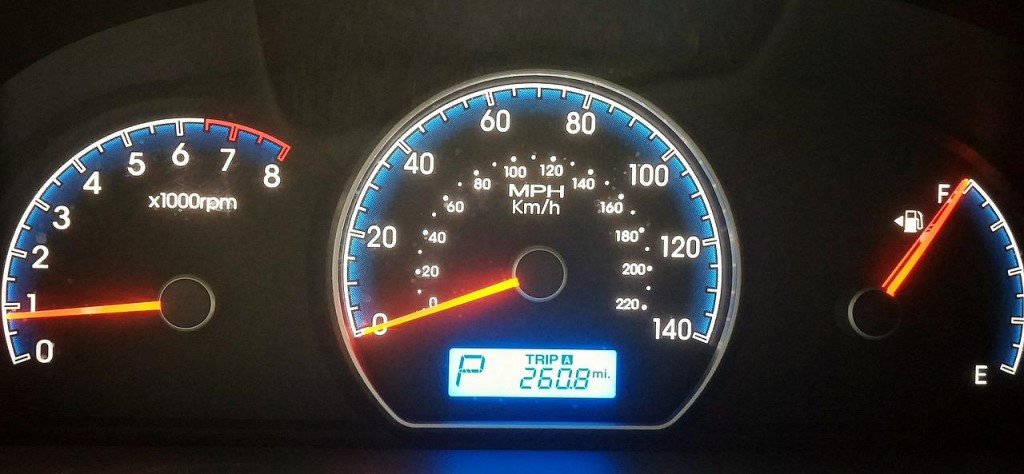Is your RPM gauge not working? Don't worry—we're here to help.
Your RPM (revolutions per minute) gauge is a key part of your vehicle’s dashboard, helping you monitor engine performance and shift gears at the right time. When it stops working, it can be frustrating and even risky if left unaddressed. In this guide, we’ll walk you through the most common causes and solutions so you can get back on the road with confidence.
Click on each section below to learn more and troubleshoot the issue step-by-step.
If you are looking for a trustworthy mechanic to fix your RPM Gauge, contact us. Our team of experienced, expert mechanics would be happy to help.
Is Your RPM Gauge Not Working?
1. What Is an RPM Gauge and What Does It Do?
An RPM gauge is also known as a tachometer. It is a very important component that lets you know what your engine is doing. Your RPM gauge is located on your vehicle's dashboard.
RPM stands for revolutions per minute, so your RPM gauge shows you how many times your engine's crankshaft is rotating each minute. In other words, it shows you how fast your engine is running. It is usually located next to your speedometer, and it can either be a digital display or an old-fashioned dial with a needle that moves in a circle, similar to a clock.
If you have a manual transmission, then your tachometer will be a standard feature, as it will let you know when you need to change gears. When your RPM gauge reaches about 3" or 3,000 revolutions per minute, you should shift into a higher gear. When you are at "1" or 1,000 revolutions per minute, you should shift down.
If you want to learn more about how a tachometer works, watch the following video.
If you have an automatic transmission, you may or may not have an RPM gauge on your dashboard. This is because vehicles with automatic transmissions are designed to shift gears on their own, so they are not as necessary as they are for a manual transmission vehicle.
Some automatic vehicles still have them, though, so you can monitor how your engine is doing.
2. RPM Gauge Not Working - Reasons Why and How to Troubleshoot
Is your RPM gauge not working? There could be a few different reasons why this happens. Here are the main ones and what you should do.
Faulty Wiring:
Over time, the wiring for your RPM gauge may become faulty. If you turn your engine on and your tachometer doesn't move or respond at all, then it could be a wiring issue.
Solution: You can check to see if you have faulty wiring by using a voltmeter. Keep your engine idling and then test the wires with the voltmeter to see if there are any inconsistencies.
Your mechanic can easily perform this test for you. If the wires are fine, then the gauge itself might be damaged and may need to be replaced.
The following video gives you a basic understanding of how to use a voltmeter (multimeter).
Inaccurate RPM Reading:
Another issue that you may be having is that your RPM gauge seems to be working, but the readings that you are getting may be erratic or even inaccurate. This could be caused by interference from other electrical devices, faulty wiring, or a damaged RPM gauge.
Solution: If you are experiencing erratic or inaccurate readings, then take your vehicle to a mechanic you can trust. They will be able to determine what is causing the issue and resolve it for you.
Broken LED Screen
If you have an RPM gauge that has an LED screen, the digital display may get damaged and stop working, so that you cannot see the readings.
Solution: It is best to take your vehicle to a mechanic you can trust so that they can fix or replace your LED screen. This is important to get seen because many of these screens will also display other important information about your vehicle's health.
Broken RPM Gauge
Over time, your RPM gauge itself may get damaged and stop working.
Solution: Even though replacing your RPM gauge may seem like an easy task, it is best to have a professional do this for you to make sure that it is installed correctly and that it is calibrated right.
3. Other Common Car Problems
The following are some of the most common car problems with links to articles that will fully explain what they are and how to troubleshoot them:
Car Engine Overheating? Here's What to Do & Not to Do
Is your car engine overheating? Then turn your heater on full blast and open your windows. Pull over as soon as you can and turn off your engine. Add coolant once your engine has fully cooled down. Read more.
Car Has No Power? - What To Do
Learn what to do when your car has no power, including potential causes, what to check, and why you should rely on a professional mechanic to diagnose it for you. Read more.
Car Has Sticky Gears - What Is Causing The Problem & What To Do?
If your car has sticky gears, you may have a problem with your transmission. A number of possibilities can include low fluid levels, dirty transmission fluid, or a clogged filter. Read more.
How Do You Fix a Car Making Clunking Noises?
Is your car making clunking noises, and you are not sure what is going on? It could be engine or transmission problems, suspension or shock issues. Make sure that you don't ignore it as it may be something serious. Read more.
Car Making Grinding Noise? Do A Step By Step Diagnosis
Is your car making a grinding noise, and you don't know how to proceed? Here are some simple steps to follow in order to diagnose and rectify the problem. Read more.
How To Know If Your Brake Master Cylinder Is Failing
Over time, your brake master cylinder may wear out and need a replacement. Although they are intended to last as long as the vehicle itself, various factors come into play that may reduce the life of the cylinder and its parts. Read more.
RPM gauge Still not working? How Hansma Can Help
Is your RPM gauge not working? You can trust Hansma to fix it right the first time. Here’s why:
Almost 40 Years of Service: We have been serving the Waterloo region with the highest quality automotive services since 1987.
Locally Owned and Operated: You can feel good about supporting a locally owned and operated family business.
True Customer Care: At Hansma, we truly care about our customers. We will do our best to provide you with great customer care and service. When you come to Hansma, you will be treated like family.
Honest Customer Service: Our customers have come to appreciate our honest service. Our word-of-mouth referrals continue to be our largest source of new customers.
Competitive Pricing: Whether you are looking for the best tire change or you require one of our other automotive services, our highly trained technicians will be able to diagnose and fix your vehicle at a highly competitive price.
Reliable Repairs: You can rely on the technical expertise of our friendly staff to keep your vehicle in peak condition.
Contact us today to book an appointment.
“It was first time and best experience I ever had. Very professional, Reliable, Very Honest and friendly environment. Definitely recommended.”





